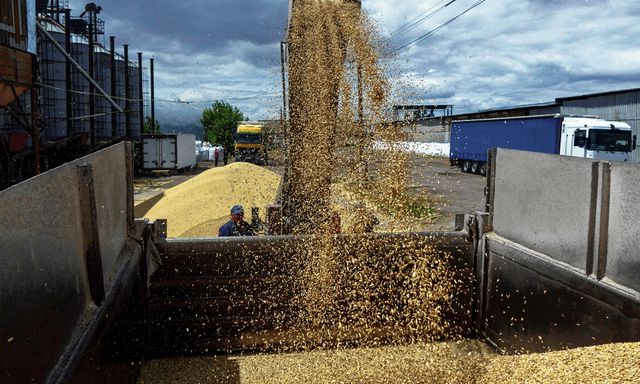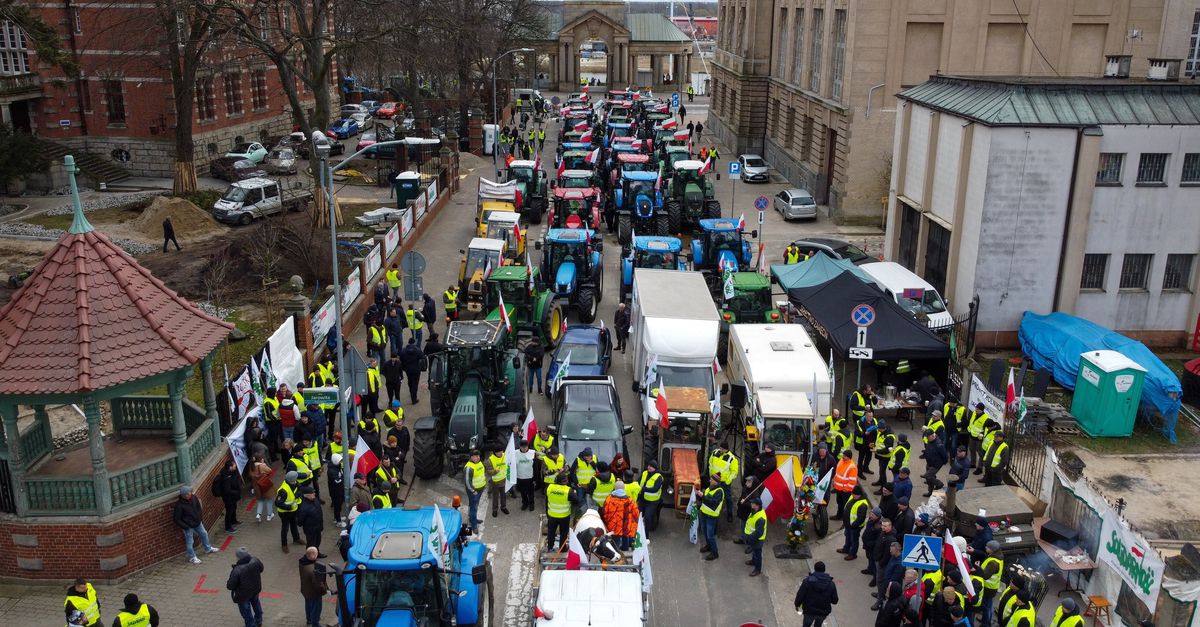Border crossings blocked in Bulgaria, tractor protests in several Polish cities and in the Romanian capital, farmers went to the European Commission office on Friday bearing one important message on protest banners: “Don’t punish our solidarity.” Central and Eastern Europe has also seen farmers’ protests since this weekend, over Ukrainian grain flooding these countries.
Farmers in those countries fear falling victim to increased Ukrainian grain exports. Now that Ukrainian grain is no longer exported to Russia and trade across the Black Sea is severely hampered by the presence of warships, sea mines, and port blockades, Ukrainian grain ends up on markets in neighboring countries.
This is against the conventions. Last May, the European Commission submitted Action Plan To stimulate the export of agricultural commodities from Ukraine, through transit countries such as Poland. Through the “corridors of solidarity”, Ukrainian grain will not compete with European countries, but will be exported directly to the African continent and the Middle East.
But now it seems that the pills are also appearing in the domestic market of neighboring countries. Silos are full of Ukrainian grain and farmers fear falling prices. Romania’s Ministry of Agriculture calculated earlier this month that Poland, Romania, Hungary, Bulgaria and Slovakia combined would lose more than €400m in income due to the influx of Ukrainian grain. While the European Commission announced about 50 million euros in support measures.
Photo by Janik Skarynski/AFP
He even gave Polish Agriculture Minister Henryk Kowalczyk his job last Wednesday. He was unable to satisfy the Polish peasantry, a very important group of voters for the ruling Law and Justice party in the elections to be held next fall.
On the day of Kowalczyk’s resignation, thousands of Poles marched through Warsaw’s Old Town carrying Ukrainian flags to welcome Ukrainian President Volodymyr Zelensky – and watch him receive Poland’s highest honor. But once behind closed doors, Poland and Ukraine could not find a solution to the problems that arose that day.
‘Traitors!’ Thieves!’
In Polish cities, farmers have been demonstrating for weeks. They daily block access roads in border towns with their tractors, shout slogans like “Traitors! Thieves! Judas!” and distribute free potatoes to residents to convince them of their arguments.
The leader of the peasant movement, Michal Kolodziak, told the Polish newspaper earlier this month. Rzeczpospolita That the Minister of Agriculture Kowalczyk “betrayed and deceived” Polish farmers because he knew that a lot of Ukrainian grain reached the Polish market. Stanislav Barna, who is leading the protests on behalf of farmers in the German-Polish border town of Szczecin on behalf of the Solidarity trade union, said the minister’s resignation does not solve anything: “Politics is for politicians, we want solutions.”
Farmers want to reintroduce import duties on Ukrainian agricultural products and ban the sale of Ukrainian grain to transit countries. The affected countries mainly want additional EU subsidies to build better infrastructure and “humane” grain purchases, apparently. from the letter which the five leaders of Poland, Romania, Bulgaria, Slovakia and Hungary sent to Ursula von der Leyen, the president of the European Commission, at the end of March.

Read this too Interview about the grain deal between Ukraine and Russia
A new agreement was reached between Poland and Ukraine last Friday. Poland’s new Minister of Agriculture, Robert Tellos, announced that there would be a temporary import moratorium on Ukrainian grain. In addition, he warned other European countries, in view of the upcoming grain harvest, which will start from June: “The grain issue is not only a problem for Poland, but for the whole of Europe.”
Despite the new interim agreement between Poland and Ukraine, peace does not seem to have returned to Poland yet. After a two-day break during Easter, one of the most important holidays in the country, the peasant movements announced they would resume demonstrations on Tuesday.







